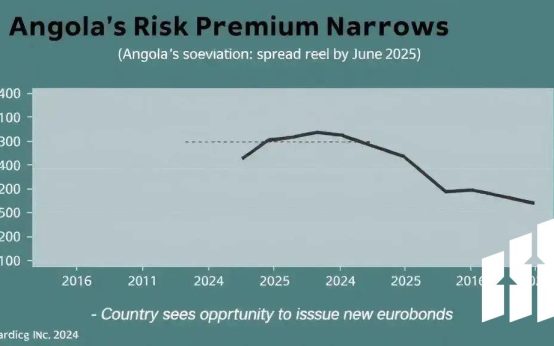How inflation affects your finances lies in reducing purchasing power, increasing daily costs, impacting savings and investments, raising debt expenses, and requiring smart budgeting and long-term planning to protect and grow your wealth.
How inflation affects your finances is something many feel but few fully understand. Ever wondered why prices keep rising and how it changes the way you manage money? Let’s explore this together and see what you can do to keep control.
Understanding inflation and its impact on daily expenses
Inflation causes the general prices of goods and services to rise over time, which directly affects your daily expenses. When inflation goes up, items like groceries, fuel, and utilities often cost more, meaning your money doesn’t stretch as far as before. This can make it harder to maintain your usual lifestyle without adjusting your spending habits.
Everyday essentials tend to be hit the hardest by inflation. For example, food prices can fluctuate significantly, impacting household budgets. It’s not uncommon to notice that your favorite groceries become more expensive week by week. Fuel costs also tend to rise, increasing expenses for transportation or deliveries.
Understanding how inflation affects different categories helps you plan better. Some expenses are more sensitive to inflation, such as housing and healthcare, while others like electronics might not increase as quickly. Being aware of this helps in anticipating which parts of your budget will need more attention.
Moreover, inflation can reduce the purchasing power of fixed incomes or savings, making it essential to review your financial plans. Adjusting your spending, seeking discounts, or buying in bulk might be practical ways to cope. Tracking price changes regularly can help you spot trends early and make smarter financial decisions.
How inflation influences your savings and investments

Inflation can significantly affect the value of your savings and investments over time. When inflation is high, the purchasing power of money decreases, meaning the same amount of money will buy less in the future. This erosion affects cash savings the most since the interest earned may not keep up with rising prices.
For investments, understanding inflation’s impact is crucial. Fixed-income assets like bonds may lose value in real terms if their returns do not outpace inflation. Stocks, on the other hand, can sometimes provide protection because companies may raise prices, leading to higher revenues and earnings.
However, inflation does add uncertainty to investment returns. It’s important to diversify your portfolio by including assets that typically perform well during inflationary periods, such as real estate, commodities, or inflation-protected securities like TIPS (Treasury Inflation-Protected Securities).
Keeping an eye on inflation trends helps you make better decisions about where to put your money. Regularly reviewing and adjusting your investment strategy ensures that you sustain or grow your wealth despite inflation’s effects.
Strategies to adjust your budget during inflationary periods
Adjusting your budget during inflation requires careful planning and prioritization. Start by tracking your spending closely to identify areas where prices have increased the most. This will help you find costs that you can reduce or eliminate entirely.
One effective strategy is to focus on essential expenses first, such as housing, food, and utilities. Look for ways to save, like buying generic brands, using coupons, or shopping during sales. Meal planning and cooking at home more often can also help lower food costs.
Consider reducing discretionary spending on non-essential items like entertainment, dining out, or luxury purchases. Setting a clear spending limit for these categories can keep your budget balanced despite inflationary pressures.
Building an emergency fund becomes more important during inflationary periods. Having cash reserves cushions you against unexpected price jumps or income changes.
Finally, review any debt payments and try to pay down high-interest loans faster. Inflation can affect interest rates, so managing your debts wisely will ease financial strain.
The role of interest rates in inflation and debt management

Interest rates play a crucial role in controlling inflation and managing debt. When inflation rises, central banks often increase interest rates to slow down economic activity. Higher rates make borrowing more expensive, which can reduce spending and help lower inflation over time.
For individuals, rising interest rates can mean higher costs on variable-rate debts like credit cards, mortgages, and personal loans. This increases monthly payments and can strain budgets if not managed carefully.
Fixed-rate loans, however, are less affected by interest rate changes, providing some financial stability during inflationary periods. Refinancing existing debt before rates rise might be a wise strategy to lock in lower payments.
Higher interest rates also impact savings and investments. Savings accounts and fixed-income investments may offer better returns, helping to offset some effects of inflation. Understanding how interest rates influence your financial products is key to making informed decisions.
Effective debt management during inflation involves balancing repayments, avoiding new high-interest debt, and considering how rising rates affect your overall financial health.
Long-term financial planning considering inflation trends
Long-term financial planning must account for inflation trends to protect and grow your wealth effectively. Inflation gradually reduces the purchasing power of money, so planning without considering it can lead to unpleasant surprises in retirement or major life goals.
Diversifying investments is a key strategy to combat inflation’s effects. Including assets like stocks, real estate, and inflation-protected securities can help your portfolio keep pace with or outgrow inflation.
Regularly reviewing and adjusting your financial plan ensures it adapts to changing inflation rates. This helps maintain your desired lifestyle and savings goals despite economic shifts.
Incorporating inflation assumptions into budgeting and retirement planning also provides more realistic expectations. Planning for higher medical costs, housing, and everyday expenses protects you from underestimating future needs.
Additionally, working with a financial advisor to tailor your plan can provide personalized strategies to mitigate inflation risks and optimize growth.
Managing your finances during inflation
Understanding how inflation affects your money is essential to stay financially healthy. By adjusting your budget, managing debt carefully, and planning long term, you can protect your savings and investments from losing value.
Remember to keep track of rising costs and adapt your spending habits. Diversifying your investments and working with financial experts can help you stay ahead of inflation’s impact.
With thoughtful planning and smart choices, you can maintain control over your finances and secure a stable future despite inflation challenges.
FAQ – How inflation affects your finances
What is inflation and how does it affect my daily expenses?
Inflation is the rise in prices over time, which means your money buys less. It makes everyday items like food and fuel more expensive.
How does inflation impact my savings and investments?
Inflation reduces the value of savings and fixed income investments unless their returns keep up with price increases. Diversifying your investments can help protect your money.
What budgeting strategies can help during inflationary periods?
Focus on essentials, reduce discretionary spending, use coupons, plan meals, and build an emergency fund to manage costs effectively during inflation.
How do interest rates relate to inflation and debt management?
Interest rates often rise to combat inflation, making borrowing more expensive. Managing debt wisely by avoiding high-interest loans can reduce financial strain.
Why is long-term financial planning important with inflation in mind?
Planning with inflation trends helps you maintain the purchasing power of your money and meet future expenses like housing and healthcare.
How can I protect my finances against inflation?
Diversify your investments with assets that tend to keep up with inflation, monitor your expenses closely, and adjust your financial plans regularly.


 Miran Highlights Dual Goals of Fed and Interest Rate Outlook
Miran Highlights Dual Goals of Fed and Interest Rate Outlook  Are You a Robot? Unusual Activity Detected on Bloomberg
Are You a Robot? Unusual Activity Detected on Bloomberg  Keir Starmer Leads Business Delegation to India for Trade Pact
Keir Starmer Leads Business Delegation to India for Trade Pact  Takaichi Appoints Ex-Finance Minister as Secretary General of LDP
Takaichi Appoints Ex-Finance Minister as Secretary General of LDP  Argentina Continues Dollar Sales Amid Weakened Peso Crisis
Argentina Continues Dollar Sales Amid Weakened Peso Crisis  White House Calls on Democrats to Resolve Ongoing Government Shutdown
White House Calls on Democrats to Resolve Ongoing Government Shutdown